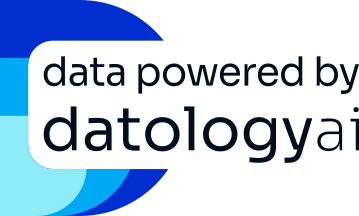In-Depth Analysis of Arcee AFM-4.5B-GGUF: Technical Innovations for Enterprise AI

Visualization of Arcee AFM-4.5B architecture
Why Enterprises Should Consider AFM-4.5B
Many organizations face common AI deployment challenges:
-
High cloud inference costs for large models -
Performance limitations on edge devices -
Insufficient specialized capabilities in code/math domains -
Restrictive commercial licensing terms
Arcee.ai’s AFM-4.5B-GGUF addresses these through three engineering breakthroughs:
Core Technical Innovations
-
Efficient Inference Architecture
Grouped query attention reduces computational overhead -
Data Quality Revolution
8 trillion token targeted training dataset -
Activation Function Advancement
ReLU² replaces SwiGLU for optimized sparsification
1. Architectural Engineering Insights
Decoder Design Principles
Building on the Transformer foundation, AFM-4.5B implements decoder-only architecture with two strategic modifications:
Why ReLU² instead of SwiGLU?
The research team discovered ReLU² maintains mathematical reasoning capabilities while enabling structured pruning. This allows compression for edge deployment with under 2% performance loss.
graph LR
A[Input] --> B(Grouped Query Attention)
B --> C{ReLU² Activation}
C --> D[Weight Sparsification]
D --> E[Edge Deployment]
2. Industrial-Grade Training Methodology
Three-Phase Training Regimen
Performance excellence stems from a specialized training approach:
-
Pretraining Phase (6.5T tokens)
-
Modified TorchTitan framework -
Multilingual general knowledge base
-
-
Midtraining Phase (1.5T tokens)
-
Enhanced mathematical reasoning focus -
Optimized code generation capabilities
-
-
Instruction Tuning Dual-Path
# Supervised fine-tuning model = load_pretrained('AFM-4.5B-base') sft_trainer = AxolotlFramework( dataset=high_quality_instructions, epochs=3 ) # Reinforcement learning rl_trainer = VerifiersAdapted( reward_model=human_preference_verifier, kl_penalty=0.02 )
Data Quality Framework
Collaboration with DatologyAI produced an 8-trillion token dataset using five filtration layers:
(Schematic: Data filtration process)
-
Model-based dynamic quality thresholds -
Embedding-space semantic deduplication -
Target distribution matching -
Multi-source blending strategy -
Synthetic data enhancement
3. Performance Benchmarks: Enterprise-Ready Results
Comparative Analysis
Internal testing demonstrates exceptional efficiency (NVIDIA A100-80GB environment):

Radar chart: Model capability assessment
4. Commercial Deployment Guide
Recommended Inference Parameters
inference_config:
temperature: 0.5 # Creativity control
top_k: 50 # Candidate token range
top_p: 0.95 # Probability threshold
repeat_penalty: 1.1 # Repetition suppression
Licensing Structure

DatologyAI data authorization
Key Arcee Model License (AML) provisions:
-
Free commercial use for companies under $1.75M annual revenue -
Weight redistribution prohibited to larger enterprises -
SaaS applications permitted without restriction -
Academic research fully authorized
“
Licensing philosophy: Enable startup innovation while ensuring sustainable development
5. Technical Decision Maker FAQ
Deployment Considerations
Q: How to balance model size versus accuracy?
AFM-4.5B’s sparsification enables dynamic scaling:
-
Cloud: Full 4.5B parameters -
Edge: Compressible to 2.8B parameters -
IoT: Ultra-compact 1.2B version
Q: What validates mathematical capabilities?
Midtraining incorporates 1.5T specialized tokens:
-
University-level math problems -
Financial modeling cases -
Engineering computation templates
Q: Which industrial applications are supported?
Validated use cases include:
-
Automated code review (GitHub integration) -
Manufacturing equipment diagnostics -
Supply chain optimization -
Financial risk simulation
Conclusion: Enterprise AI Reimagined
AFM-4.5B achieves the enterprise “impossible triangle” through:
✅ Full-stack cloud-to-edge deployment
✅ Specialized coding/math capabilities
✅ Business-friendly licensing
This model represents not just technical advancement but engineering philosophy – proving that precision architecture + quality data > parameter scaling.
“
As the development team states: “We build not the largest models, but the most enterprise-aware AI”

